Medical articles
Are there different blood types?
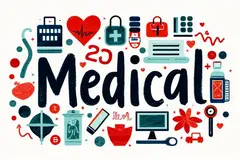 Blood types are a fundamental aspect of human biology, playing a crucial role in medical procedures and everyday health. Understanding the different blood types is essential for anyone interested in healthcare or simply curious about their own body's functions.
Why Do We Have Different Blood Types?
The existence of different blood types can be traced back to... read more...
Blood types are a fundamental aspect of human biology, playing a crucial role in medical procedures and everyday health. Understanding the different blood types is essential for anyone interested in healthcare or simply curious about their own body's functions.
Why Do We Have Different Blood Types?
The existence of different blood types can be traced back to... read more...
Does caffeine affect heart rate?
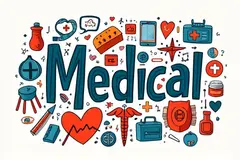 Does Caffeine Increase Heart Rate?
Caffeine is a widely consumed stimulant found in coffee, tea, and various other beverages. Many people wonder if caffeine has an impact on heart rate. The answer is yes; caffeine can indeed increase your heart rate due to its stimulating effects on the central nervous system.
How Caffeine Affects Your Heartbeat
Caffeine... read more...
Does Caffeine Increase Heart Rate?
Caffeine is a widely consumed stimulant found in coffee, tea, and various other beverages. Many people wonder if caffeine has an impact on heart rate. The answer is yes; caffeine can indeed increase your heart rate due to its stimulating effects on the central nervous system.
How Caffeine Affects Your Heartbeat
Caffeine... read more...
Can high cholesterol cause cognitive issues?
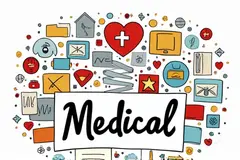 Does Elevated Cholesterol Harm Brain Health?
High cholesterol is commonly associated with cardiovascular diseases, but its impact on brain health and cognitive function has also garnered significant attention. Research suggests that elevated levels of cholesterol can have detrimental effects on the brain's structure and function.
Can High Cholesterol Cause... read more...
Does Elevated Cholesterol Harm Brain Health?
High cholesterol is commonly associated with cardiovascular diseases, but its impact on brain health and cognitive function has also garnered significant attention. Research suggests that elevated levels of cholesterol can have detrimental effects on the brain's structure and function.
Can High Cholesterol Cause... read more...
Who discovered the poliovirus?
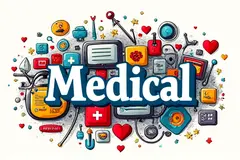 The discovery of the poliovirus was a monumental achievement in medical history, marking a significant step forward in understanding and combating one of the most feared diseases of the early 20th century. This article delves into the journey that led to the identification of this elusive virus, highlighting the contributions of key figures who played... read more...
The discovery of the poliovirus was a monumental achievement in medical history, marking a significant step forward in understanding and combating one of the most feared diseases of the early 20th century. This article delves into the journey that led to the identification of this elusive virus, highlighting the contributions of key figures who played... read more...
Can poor dental hygiene contribute to heart disease?
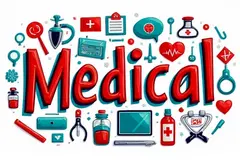 Does Bad Oral Health Cause Heart Problems?
The relationship between oral health and overall well-being is a topic of increasing interest in the medical community. One area that has garnered significant attention is the potential link between poor dental hygiene and heart disease. This article delves into whether bad oral health can indeed contribute to... read more...
Does Bad Oral Health Cause Heart Problems?
The relationship between oral health and overall well-being is a topic of increasing interest in the medical community. One area that has garnered significant attention is the potential link between poor dental hygiene and heart disease. This article delves into whether bad oral health can indeed contribute to... read more...
Can people contract tuberculosis from pets?
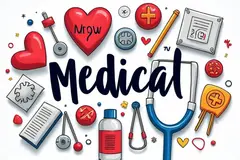 Can You Get TB from Your Pet?
Tuberculosis (TB) is a serious infectious disease caused by the bacterium Mycobacterium tuberculosis. While it primarily affects humans, many pet owners wonder if their furry companions can transmit this illness to them. This article aims to clarify whether pets pose any risk of contracting or spreading TB.
Is Tuberculosis... read more...
Can You Get TB from Your Pet?
Tuberculosis (TB) is a serious infectious disease caused by the bacterium Mycobacterium tuberculosis. While it primarily affects humans, many pet owners wonder if their furry companions can transmit this illness to them. This article aims to clarify whether pets pose any risk of contracting or spreading TB.
Is Tuberculosis... read more...
How does smoking affect lungs?
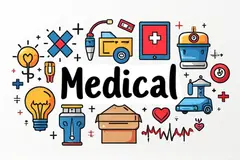 The impact of smoking on lung health is profound and multifaceted. Understanding the damage caused by cigarettes to your lungs can be a critical motivator for quitting this harmful habit.
Smoking's Impact on Lung Health
When you smoke, your lungs are exposed to over 7,000 chemicals, many of which are toxic and carcinogenic. These substances irritate the... read more...
The impact of smoking on lung health is profound and multifaceted. Understanding the damage caused by cigarettes to your lungs can be a critical motivator for quitting this harmful habit.
Smoking's Impact on Lung Health
When you smoke, your lungs are exposed to over 7,000 chemicals, many of which are toxic and carcinogenic. These substances irritate the... read more...
Who can administer naloxone in case of overdose?
 Naloxone, commonly known by its brand name Narcan, is a life-saving medication used to reverse the effects of opioid overdose. Understanding who can administer naloxone and when it should be used is crucial for saving lives. This article delves into the legalities, training requirements, and public access to naloxone administration.
When to Use Naloxone for... read more...
Naloxone, commonly known by its brand name Narcan, is a life-saving medication used to reverse the effects of opioid overdose. Understanding who can administer naloxone and when it should be used is crucial for saving lives. This article delves into the legalities, training requirements, and public access to naloxone administration.
When to Use Naloxone for... read more...
What causes anemia and how is it treated?
 Understanding Anemia: Causes & Treatment
Anemia, a condition characterized by a lack of healthy red blood cells to carry adequate oxygen to your body's tissues, affects millions worldwide. It can be caused by various factors ranging from iron deficiency to chronic diseases and genetic disorders. This article aims to provide a comprehensive understanding... read more...
Understanding Anemia: Causes & Treatment
Anemia, a condition characterized by a lack of healthy red blood cells to carry adequate oxygen to your body's tissues, affects millions worldwide. It can be caused by various factors ranging from iron deficiency to chronic diseases and genetic disorders. This article aims to provide a comprehensive understanding... read more...
What Is Phenobarbital Used For?
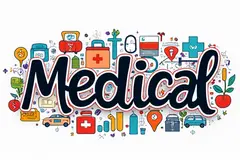 Phenobarbital: Uses, Side Effects, and Alternatives
Phenobarbital is a barbiturate medication that has been used for decades to treat various neurological conditions. This article delves into the uses of phenobarbital, how it works, its side effects, dosage guidelines, comparisons with other anticonvulsants, risks associated with long-term use, overdose... read more...
Phenobarbital: Uses, Side Effects, and Alternatives
Phenobarbital is a barbiturate medication that has been used for decades to treat various neurological conditions. This article delves into the uses of phenobarbital, how it works, its side effects, dosage guidelines, comparisons with other anticonvulsants, risks associated with long-term use, overdose... read more...
Causes of depression?
 What Causes Depression Today?
Depression is a multifaceted condition influenced by various factors, both internal and external. Understanding the causes of depression today can empower individuals to seek appropriate help and support.
Common Triggers of Depression Explained
Anxiety Disorders: Often co-occurring with depression, anxiety disorders exacerbate... read more...
What Causes Depression Today?
Depression is a multifaceted condition influenced by various factors, both internal and external. Understanding the causes of depression today can empower individuals to seek appropriate help and support.
Common Triggers of Depression Explained
Anxiety Disorders: Often co-occurring with depression, anxiety disorders exacerbate... read more...
Are seeds good for heart health?
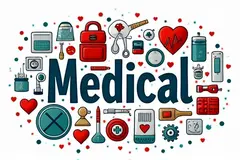 Heart disease remains a leading cause of death globally, and many people are seeking natural ways to improve cardiovascular health. One often overlooked source of heart-healthy nutrients is seeds. This article explores the benefits of incorporating various types of seeds into your diet to support heart health.
Top Seeds to Boost Heart Health
Several seeds... read more...
Heart disease remains a leading cause of death globally, and many people are seeking natural ways to improve cardiovascular health. One often overlooked source of heart-healthy nutrients is seeds. This article explores the benefits of incorporating various types of seeds into your diet to support heart health.
Top Seeds to Boost Heart Health
Several seeds... read more...